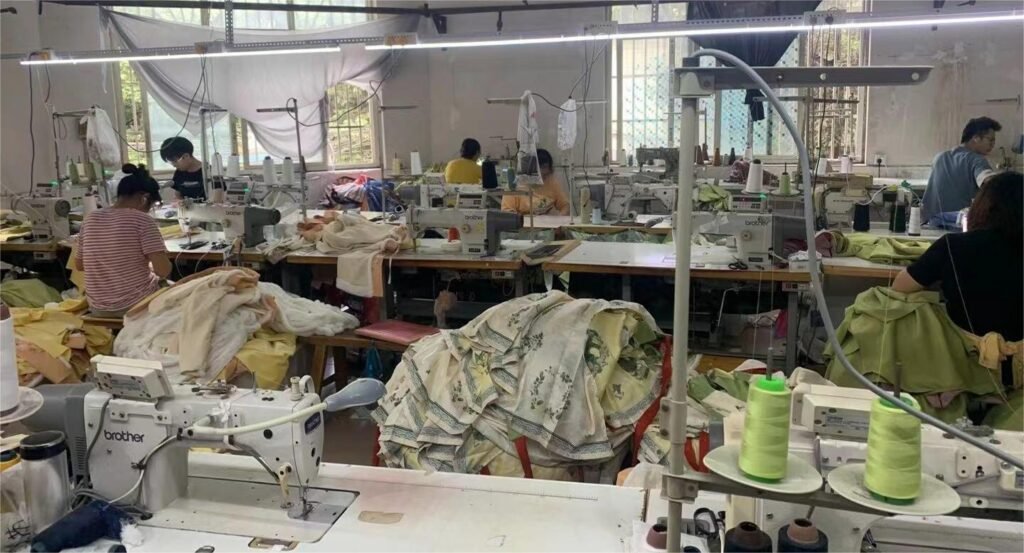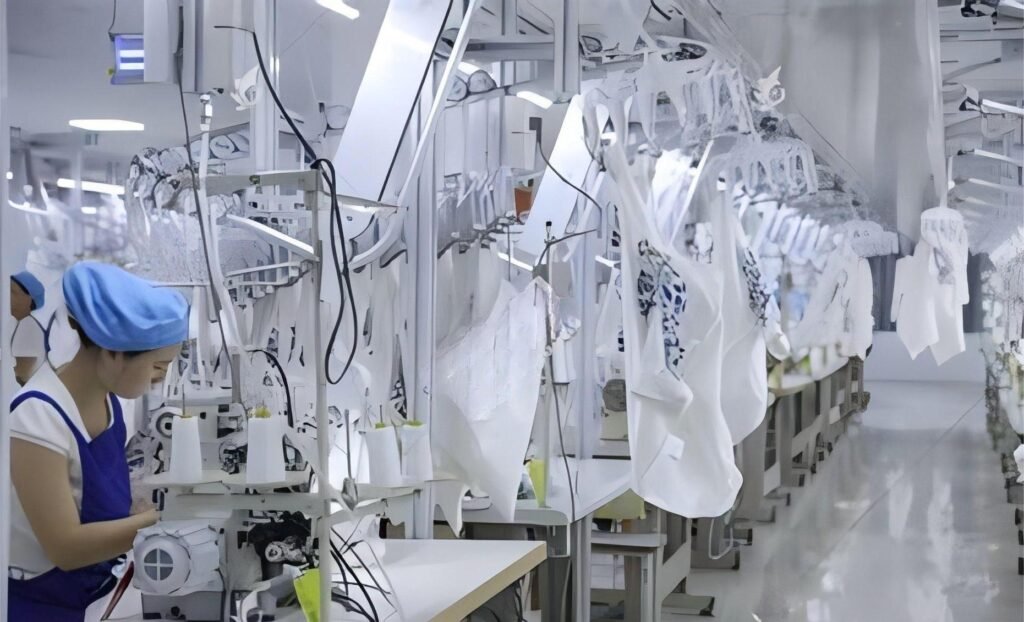No products in the cart.
Custom Yoga Pants
Clothes Manufacturer: Reliable Production for High-Quality Apparel
Introduction: The Importance of Reliable Production in the Clothing Industry
Reliable production is a crucial aspect of the clothing industry, especially when it comes to manufacturing high-quality apparel. The success of a clothing brand heavily relies on the ability of its clothes manufacturer to consistently deliver products that meet the brand’s standards and customer expectations. In this article, we will explore the various factors that contribute to reliable production in the clothing industry and its significance in ensuring the production of high-quality apparel.

Understanding the Role of a Clothes Manufacturer in High-Quality Apparel
A clothes manufacturer plays a pivotal role in the production of high-quality apparel. They are responsible for transforming design concepts into tangible garments that are not only aesthetically pleasing but also durable and comfortable. A reliable clothes manufacturer understands the importance of using quality materials, employing skilled workers, and adhering to strict production processes to ensure the creation of garments that meet the brand’s standards.
Factors to Consider When Choosing a Reliable Clothes Manufacturer
When selecting a clothes manufacturer, several factors need to be considered to ensure reliability. Firstly, it is essential to assess the manufacturer’s experience and expertise in producing the type of apparel required. A manufacturer with a proven track record in producing similar garments is more likely to deliver reliable results. Additionally, considering the manufacturer’s production capacity, lead times, and ability to handle large orders is crucial to meet demand and avoid delays.
The Significance of Quality Control in Clothes Manufacturing
Quality control is a critical aspect of reliable production in the clothing industry. It involves implementing measures to ensure that each garment meets the brand’s quality standards before it reaches the market. This includes conducting thorough inspections at various stages of production, such as fabric inspection, pattern cutting, stitching, and finishing. By implementing robust quality control processes, clothes manufacturers can identify and rectify any defects or inconsistencies, ensuring that only high-quality apparel reaches the customers.
Streamlining Production Processes for Efficient and Reliable Results
Efficiency is key to reliable production in the clothing industry. Streamlining production processes not only helps in meeting deadlines but also ensures consistent quality. This can be achieved by optimizing workflow, eliminating bottlenecks, and implementing lean manufacturing principles. By identifying and addressing inefficiencies, clothes manufacturers can enhance productivity, reduce costs, and deliver reliable results consistently.
The Role of Technology in Enhancing Production Reliability for Clothes Manufacturers
Technology plays a significant role in enhancing production reliability for clothes manufacturers. Advanced machinery and software can automate various stages of the production process, improving accuracy and efficiency. For example, computer-aided design (CAD) software enables precise pattern cutting, reducing errors and minimizing fabric wastage. Additionally, technology can facilitate real-time monitoring of production processes, allowing manufacturers to identify and address issues promptly, ensuring reliable production.
Ensuring Ethical and Sustainable Practices in Clothes Manufacturing
In today’s socially conscious world, ethical and sustainable practices are of utmost importance in clothes manufacturing. Reliable clothes manufacturers prioritize ethical sourcing of materials, fair treatment of workers, and environmentally friendly production processes. By adhering to ethical and sustainable practices, manufacturers not only contribute to a better world but also enhance their brand reputation and attract customers who value responsible production.

Collaborating with Designers: A Key Element in Reliable Apparel Production
Collaboration between clothes manufacturers and designers is a crucial element in reliable apparel production. Designers bring creative vision and expertise in fashion trends, while manufacturers contribute technical knowledge and production capabilities. By working closely together, designers and manufacturers can ensure that the design intent is translated accurately into the final product, resulting in reliable production of high-quality apparel.
The Impact of Reliable Production on Brand Reputation and Customer Satisfaction
Reliable production has a significant impact on brand reputation and customer satisfaction. When a clothing brand consistently delivers high-quality apparel, it builds trust and loyalty among customers. Positive word-of-mouth spreads, attracting new customers and enhancing the brand’s reputation. On the other hand, unreliable production can lead to customer dissatisfaction, negative reviews, and damage to the brand’s image. Therefore, reliable production is crucial for maintaining a positive brand reputation and ensuring customer satisfaction.
Overcoming Challenges: How Clothes Manufacturers Maintain Reliability in a Competitive Market
The clothing industry is highly competitive, and clothes manufacturers face various challenges in maintaining reliability. One of the key challenges is managing the supply chain effectively. Manufacturers need to ensure a steady supply of quality materials and components to avoid delays and maintain consistent production. Additionally, managing skilled labor, especially in regions with high turnover rates, can be challenging. By implementing robust recruitment and training programs, manufacturers can overcome these challenges and maintain reliability in a competitive market.
Case Studies: Successful Clothes Manufacturers and Their Reliable Production Strategies
Several successful clothes manufacturers have implemented reliable production strategies to achieve consistent quality and customer satisfaction. One such example is Zara, a renowned fast-fashion brand. Zara’s success lies in its vertically integrated supply chain, which allows for quick response to market demands and efficient production processes. Another example is Patagonia, a brand known for its commitment to ethical and sustainable practices. Patagonia ensures reliable production by prioritizing fair trade, using recycled materials, and implementing strict quality control measures.

Conclusion: The Future of Reliable Production for High-Quality Apparel
Reliable production is a critical aspect of the clothing industry, ensuring the creation of high-quality apparel that meets customer expectations. By considering factors such as experience, capacity, and quality control, brands can choose reliable clothes manufacturers. Streamlining production processes, leveraging technology, and prioritizing ethical and sustainable practices further enhance reliability. Collaboration between designers and manufacturers plays a key role in translating design concepts into reliable production. The impact of reliable production on brand reputation and customer satisfaction cannot be overstated. Overcoming challenges and implementing successful strategies are essential for clothes manufacturers to maintain reliability in a competitive market. The future of reliable production for high-quality apparel lies in continuous improvement, innovation, and a commitment to meeting customer demands while upholding ethical and sustainable practices.
